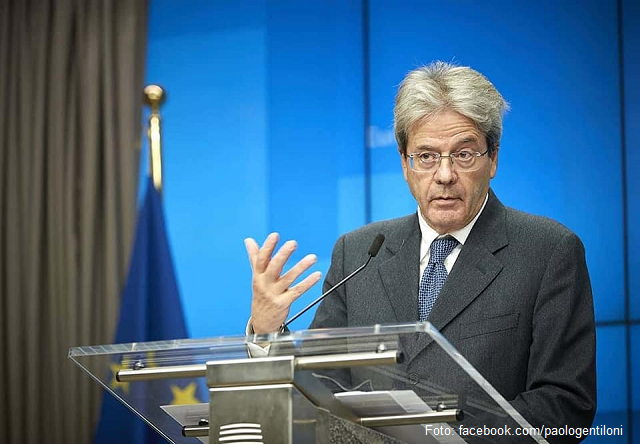Economic prospects and social readjustment
The conflict started by Russia will inevitably impact European economy, the EU Commissioner for Economy Paolo Gentiloni said in Bucharest

Bogdan Matei, 30.03.2022, 13:50
The Covid-19 pandemic affected the Romanian economy for two years. Prospects for the situation to recover had existed, all the more so since, in early March, the authorities in Bucharest decided not to prolong the state of alert and not to impose any restrictions. The invasion of Ukraine, which almost coincided with Romanias overcoming the pandemic, triggered, however, new problems that overlapped with the existing ones: very large increases in electricity and natural gas prices, with effects on all consumption prices.
During a visit to Bucharest, the European Commissioner for Economy, Paolo Gentiloni, spoke of an already visible impact on inflation, which rose in February to 6.2% in the European Union and 7.9% in Romania. This year – the official from Brussels pointed out – Romania could have an economic growth of over 4%, but the Russian invasion in Ukraine will affect it. So, against the new background created after the pandemic, with the war in Ukraine raising fears, actions must be coordinated at EU level to prevent a serious crisis and to maintain the resumption of economic growth, through Recovery and Resilience Plans.
Obviously, the European Commissioner for Economy also stressed, these plans, being drawn up before the war, could be adjusted within the limits of the Community regulations in force, but they are extremely important anyway, as they are the driving engines of growth in a difficult situation.
Through its NRRP, Romania, for example, could benefit from over 29 billion euros. The Romanian executive is working on a package of measures to manage the effects of high inflation and the conflict in Ukraine, especially in order to counteract the rise in energy and food prices, the Romanian Minister of Finance, Adrian Câciu, said. He also stressed that at least 70-80% of the measures to be implemented should be financed with European money.
One of these measures would be to support over 3.5 million low-income Romanians. They could be helped with vouchers to deal with the wave of price increases and there are discussions in this regard in the governing coalition. The Social Democratic Party has proposed the granting of 50 euro vouchers for basic food, every two months, to families with children, people with disabilities and low-income pensioners. Pupils from poor families would also be helped with vouchers worth 30 euros to buy supplies, clothes and food. The Liberals agree with the food aid and have even proposed doubling some of the vouchers. (MI)






























